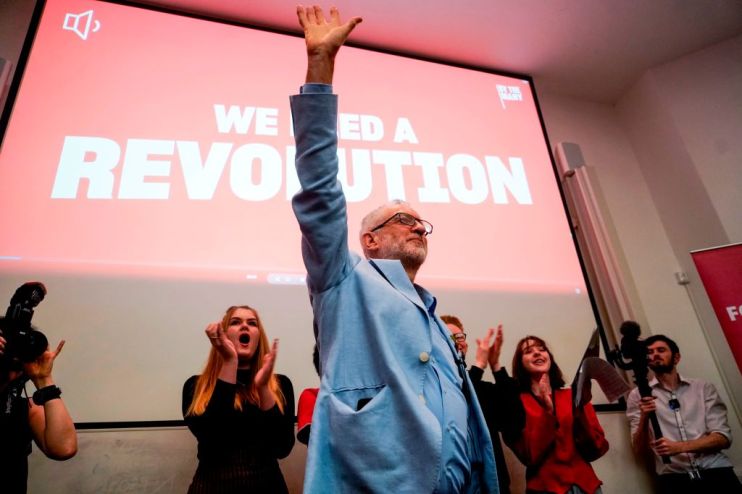Do British voters really want to ban billionaires like Corbyn says?

Say what you like about Jeremy Corbyn, at least he’s not afraid to play the hits.
A week into the General Election run-up, and the Labour campaign is already built squarely around two messages.
The first is that the secret Tory plot to privatise the NHS, nurtured over decades, is about to spring into full flower – with a free trade agreement with America as the first dastardly component.
Admittedly, it’s quite hard to see the causal mechanism here. It seems to have something to do with the UK being forced to buy drugs off US companies, which will somehow inevitably force the breaking up and selling off of the health service.
Indeed, as Christian May pointed out in an excellent piece in this paper yesterday, the NHS privatisation argument is nonsensical scaremongering.
The King’s Fund, the blue-chip research outfit on this, has concluded that, whatever definition you use, there is no privatisation epidemic.
And even if there were, the idea of the NHS buying stuff from private companies, or using private contractors to sweep the floors, make the sandwiches or even carry out basic scans and treatments, is part and parcel of making sure that we deliver the best care at the lowest price.
Given that the City A.M. Editor has scattered this straw man to the winds, I’ll focus on the second message: that if there weren’t any billionaires, there wouldn’t be any poverty. Take from the rich, give to the poor, and it would all magically be sunshine and rainbows.
As Corbyn put it on Twitter: “There are 150 billionaires in the UK while 14 million people live in poverty. In a fair society there would be no billionaires and no one would live in poverty.”
You can see the superficial attraction. At a time when growth is stagnant and real wages have broadly flatlined since the financial crisis, arguments about sharing the cake will always be compelling.
There is also a broad sense among many people that the system is rigged against them. So Corbyn’s line that behind every great fortune lies some kind of social crime will certainly have an audience.
But will the audience be as large as Labour supposes? I’m not so sure.
The basic principle of redistribution is completely accepted by the voters. We already take from the rich and give to the poor – a process which moves Britain from being one of the most unequal societies in Europe in terms of raw incomes to pretty much bang in the middle once the tax and welfare systems take from those who can afford it to support those who can’t.
However, there are two principles which work against the class envy that Corbyn is trying to stoke.
The first is that voters draw the sharpest of divides between earned and unearned wealth.
The idea that the people who founded a company which employs hundreds of people or came up with an idea that has made millions of lives better should claim their fair share of the value created is utterly uncontroversial.
What the public object to, according to the pollsters, is people who seem to be taking without having given – rapacious chief executives of privatised utilities, the bankers who crashed the economy, tech firms whose clever tax arrangements deprive the NHS of the funding it needs.
The second principle Corbyn should note is that voters know perfectly well that in order to share wealth, you have to create it.
For one of our recent papers, entitled Make Work Pay, we carried out detailed research on people’s attitudes to taxation.
Yes, they felt that the rich should pay their share. But they also recognised that if the system didn’t pay you to work harder, you wouldn’t – and that if that principle were applied across the economy, it would be disastrous for everyone.
Remarkably, the convenor of our focus groups had to work hard to get those attending to condemn even the chief executive of Persimmon, then in the news for trousering a £110m bonus. The feeling was that he might not have earned the full amount, but he had to have done something, made some canny business decisions, that deserved to be rewarded.
This isn’t to say that the Conservatives should position themselves as the blind defenders of the billionaire class.
But voters do understand that the economy is not (and should not be) a zero-sum game, and that without wealth creation there can be no wealth redistribution – nor, come to that, the cash to pay for the public services they cherish.
Because ultimately, Labour’s rhetoric isn’t about “billionaires” at all. It’s about the notion that the game is rigged – and that the only way to win it is to flip over the table.
The problem with that position is that you have to ignore all the stuff you’re breaking when you do.
Main image credit: Getty